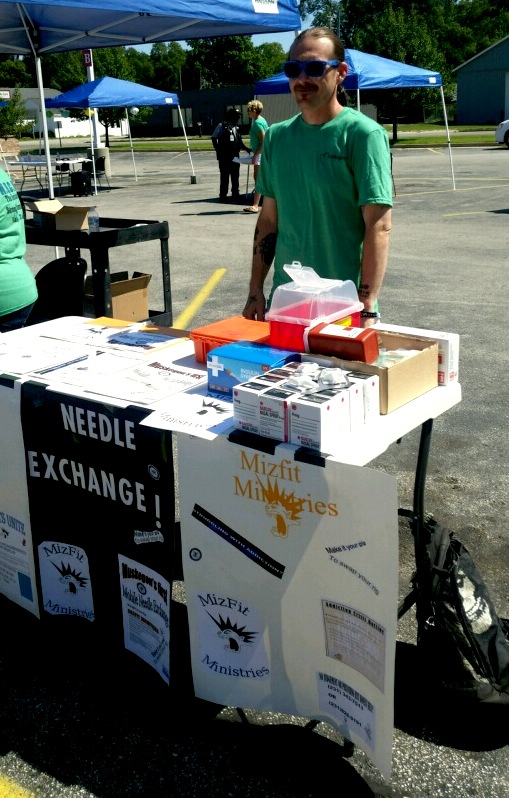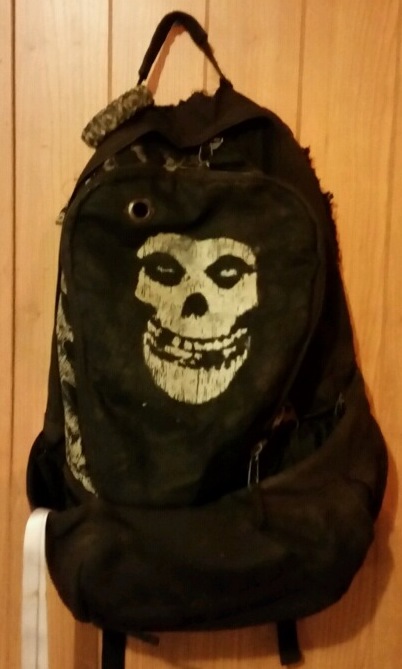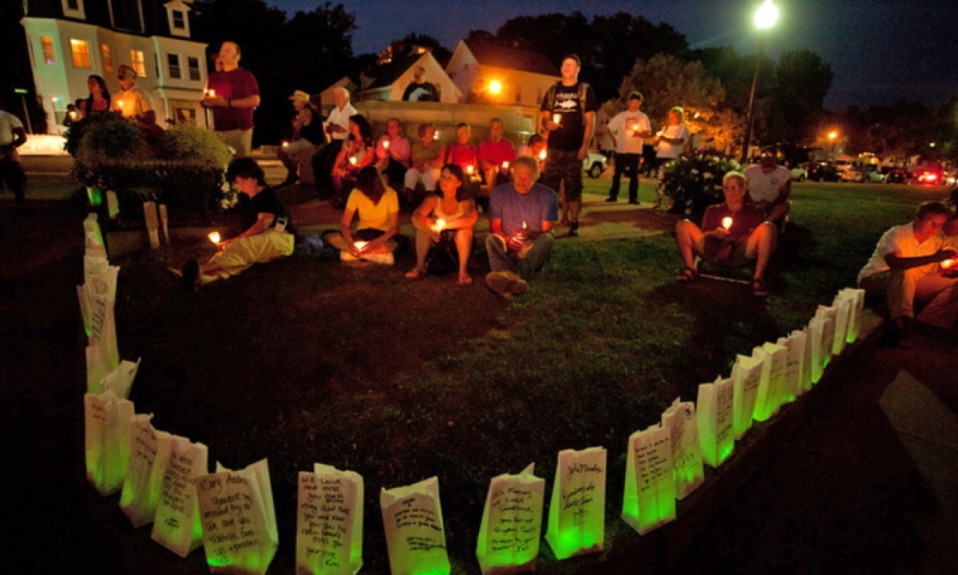After nearly dying from a heroin overdose, Tony Combs started MizFit Ministries so that he could meet users where they are and try to save them
By Jason Langendorf
The last time Tony Combs used heroin, it changed his life. But not before he brushed right up against death.
Three years ago, Combs was at home in Muskegon, Mich., where he shared a small house with a roommate. His son was stopping by for a visit, and because Combs hadn’t yet used that day, he was feeling withdrawal symptoms. He was giving treatment a go, but after decades of opioid use—which began with OxyContin at age 15—Combs was using heroin on top of a daily dose of 120 milligrams of methadone.
“I thought, Well, I’ll go ahead and do a little bit to make me right, so that way I can enjoy the visit with my son,” recalls Combs, 42. “I had got some new stuff, and this was when fentanyl was really taking off. I actually was only going to do a dime bag, and honestly that’s the last thing that I remember.”
I’m trying to bring the human side to heroin. I was a heroin addict for 17 years. Four years ago, I was homeless. I was shooting drugs. And I was exactly where these people are.”
—Tony Combs, founder of MizFit Ministries
When Combs regained consciousness, two hours had passed. His son, after receiving no response to his knocking and fearing the worst, broke down the front door to find his father unresponsive and a pale shade of blue. Combs’ son, who was aware of his father’s opioid use, grabbed a dose of naloxone from his dad’s backpack and administered it, reversing the effects of the overdose.
Just like that, Combs’ life was saved—and MizFit Ministries was conceived.
The Mission of MizFit Ministries

The MizFit Ministries Mobile Needle Exchange was launched four months ago, after a blip in Combs’ schedule left him with time on his hands and a desire to help his community. He had signed up for CCAR training to become a certified recovery coach, but when his class was delayed, Combs was too eager to wait. So with nothing more than a backpack of supplies, he began walking the same streets where he used to score drugs. Muskegon has another syringe program exchange—the Grand Rapids Red Project—but MizFit Ministries is rare in that Combs essentially takes orders and, three days a week, meets Muskegonites who use injection drugs wherever they are.
“I figured if I could go there in the middle of the night to get drugs,” Combs says, “why couldn’t I go back now?”
Purchasing syringes, caps, alcohol swabs, tourniquets and naloxone doses with his own money, Combs began the program by distributing needle exchange packs from the same black backpack with the skull print that held the Narcan his son used to save him. He now delivers supplies directly—all he needs is a first name and an address—from a red pickup truck, in which he also keeps a mobile sharps box to collect used needles. If safety concerns prevent him from meeting participants at their precise location, he says he’ll travel to within a couple blocks to make sure everyone can have their needs met.

“I’m so thankful for the opportunity,” Combs says of the program. “Just to be able to give back, and then for it to be received like it is—I’m trying to bring the human side to heroin. I was a heroin addict for 17 years. Four years ago, I was homeless. I was shooting drugs. And I was exactly where these people are.”
Combs says his experiences have helped him build a rapport with program participants and, in some cases, open the door for him to direct them to treatment.
“A lot of people so far have been open to at least a little bit of face time,” Combs says. “And at the very least, I can offer resources. You know, not everybody wants help. But it’s building up that trust. We’re just trying to make some kind of difference in the community.”
The Impact of Needle Exchange Programs
Syringe exchange programs help people stop using drugs and reduce infections such as HIV and Hepatitis C, according to the Centers for Disease Control and Prevention (CDC). Combs—who went into a Suboxone program the day after his last overdose, on his 39th birthday, and hasn’t used since—wants to be an example for Muskegon’s injection drug users.
“I tell people that I’ve had a lot of near-death experiences; this was a near-life experience for me,” Combs says of that day his son broke down his door. “Because at that moment, I understood the gravity of my decision, and I wanted to get clean for myself for the first time, without it being a spouse or the courts or whatever. It was the first time that I wanted to do it just to be a better father and a better person.”
Top photo: Shutterstock














